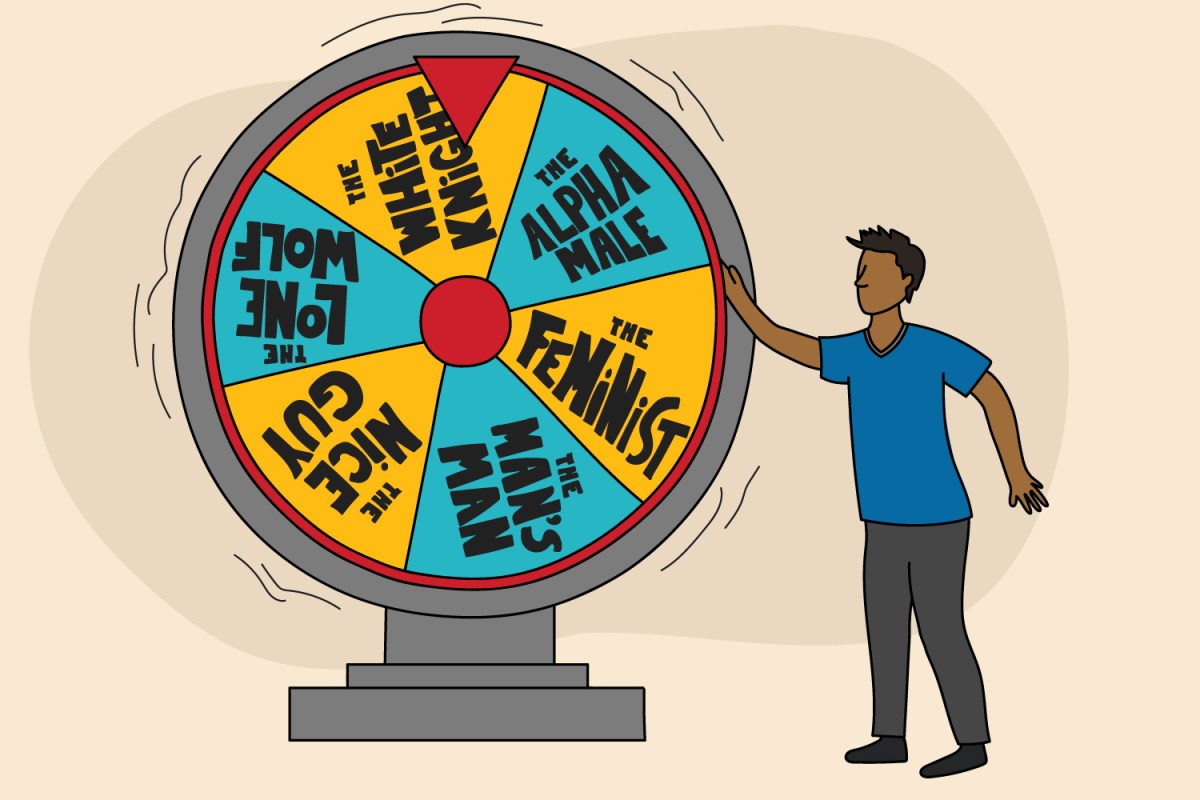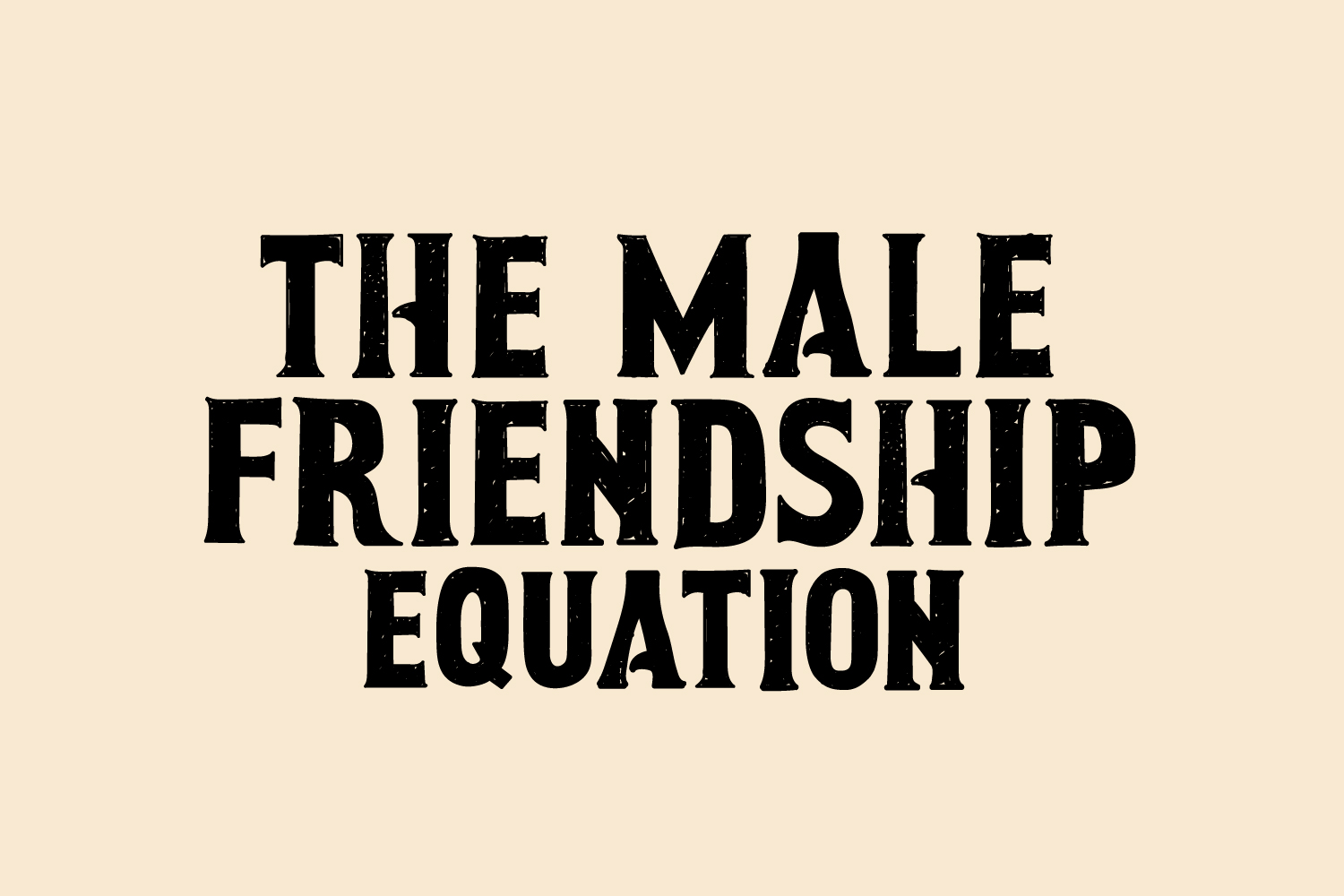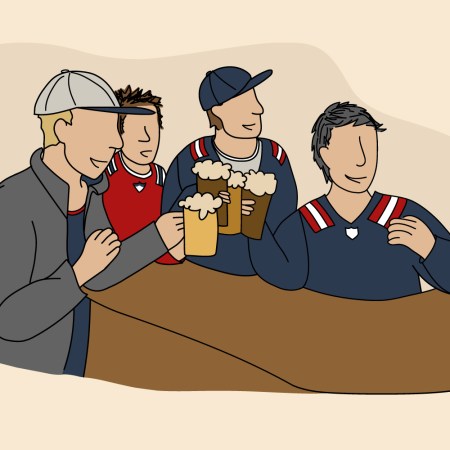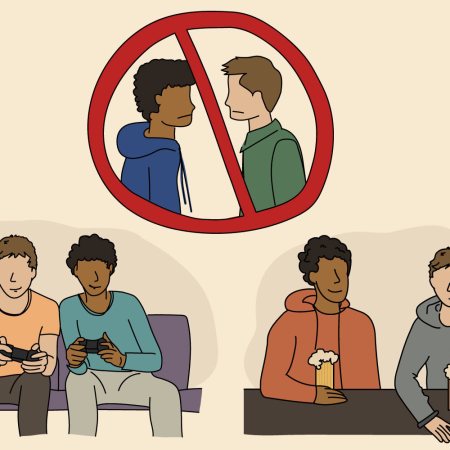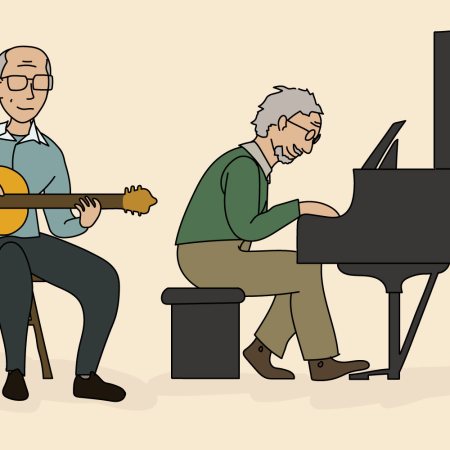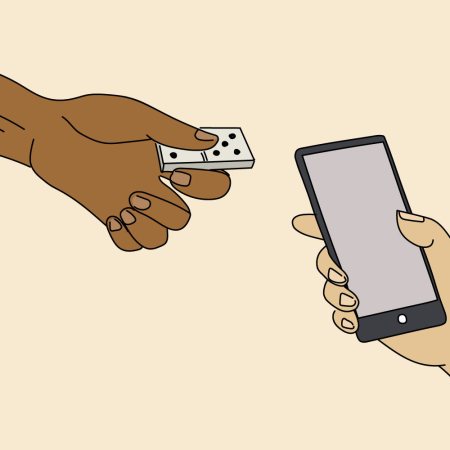During the month of April, we’re publishing a series of interviews, essays, advice columns and reported features about the male friendship crisis in the U.S., a particularly troubling slice of the country’s larger loneliness epidemic. There’s no one-size-fits-all solution, so we’re breaking it down from all angles in The Male Friendship Equation.
Over in the U.K., a kerfuffle recently broke out over a campaign to reform a famous London members’ club called the Garrick. Its problem, as campaigners see it? That the Garrick — established 1831, whose current members include Benedict Cumberbatch, Mark Knopfler and Brian Cox — is a men-only institution.
To some, the idea that such a club still exists will seem anachronistic, if not plain sexist. But others are asking why women-only organizations are not also being considered so, and wondering whether this may be symptomatic of what’s been dubbed “the second sexism”: sexism against men.
“You see these kinds of moves happening in other ‘male’ institutions, like golf clubs, with change pushed for on the basis of equality, but which actually go to deny men the spaces in which they can be themselves with other male friends,” argues Stephen Baskerville, professor of government at Patrick Henry College in Virginia, and author of The New Politics of Sex. “The opportunities men have to reinforce each other as men are being [negatively] impacted. The bigger problem is that making a claim like this comes off to a lot of people as men whining and doesn’t garner much sympathy.”
That, Baskerville contends, is likely especially true for younger men who have grown up with the ideas of third- and fourth-wave feminism — focused around sexual harassment, the objectification of women, and sexism in the workplace, among other issues — in the cultural foreground. “[Men] have had to deal with the idea that masculinity is ‘toxic,’” he says, “which is a slur and a discouragement to men to be men, which I think has likely been especially challenging in the way they relate to each other.”
The generalization of the idea of “toxic masculinity” has, he suggests, not only led some men to wrongly conclude that all masculinity is toxic, but also fueled a backlash in the form of fringe hyper-masculinity — in gang membership, militias, religious radicalization, even in the so-called “manosphere” online. The modern discussion of masculinity has failed, he adds, to recognize “that there are traits inherent to men, as there are to women, that need expression. It doesn’t recognize the impact of gender stereotypes on both men and women alike.”
Read More in the Male Friendship Series
Stories, Interviews and Advice During an “Epidemic of Loneliness”
American men are in the midst of a friendship crisis, so we’re turning our attention to these all-important platonic relationshipsIf all this sounds rather esoteric — a debate that’s certainly complex and not uncontroversial — David Benatar argues that it should be far more mainstream than it is. He’s the professor of philosophy at the University of Cape Town who coined the term “the second sexism” with his book of the same title back in 2012, pioneering the big-picture idea that men and boys face a largely unrecognized discrimination on the basis of sex, too.
He cites, by way of example, state policies that encourage men, but rarely women, into military conscription and combat; the bias of courts against men when it comes to deciding matters of divorce or child custody; that society in general takes the taboo of domestic violence against men less seriously because of prevailing attitudes that men are “fearless” or more capable of self-defense. Society foregrounds masculinity when it’s convenient, the idea goes, but denigrates it when it’s not.
“Some people think the idea [of second sexism] is laughable and others are angry at the very idea that there could be sexism against men. The idea that men might be victims seems like an affront to the notion that sexism is just a product of the patriarchy,” Benatar says. “But this is more about gender roles. There are average natural differences between men and women. People recognize that and those differences get socially reinforced — a description of a difference becomes an expectation of a difference. That has a role in exaggerating the difference, but also in punishing those people who don’t comply with the gender role.”
“Historically, that’s affected both men and women, but my sense is that female gender roles have eroded to a much greater extent, at least in Western countries, than male gender roles,” he says. “There have been overt attempts to correct those for women, but little attention to ways in which these roles harm men. Society as a whole is complicit in that.”
Bringing about change is challenging, Baskerville argues, when the cultural climate of recent years has been to heavily favor stereotypically feminine traits, celebrating prosocial and nurturing characteristics; and to disparage or at least tamp down the stereotypically masculine traits, the supposedly antisocial attributes like competition and aggression, which have nonetheless proven just as vital to society’s advancement.
Society is doing a good job in liberating women from [rigid expectations regarding behavior and roles]. It’s doing a terrible job of the same for men.
Warren Farrell, Author of The Boy Crisis
Miriam Zehnter, a psychologist at Exeter University specializing in gender bias, draws an important distinction between the more marginal idea that women’s progress in society is hurting men and the idea that men are nonetheless suffering from “the norms of masculinity still being imposed on them.”
As a case in point, she notes that research shows that such is the confusion over unstable gender roles now that a male group will punish any member “if they’re perceived as being too ‘feminine,’ or not behaving in a way that’s sufficiently ‘masculine,’” she says. “Sexism as a system might benefit men, but gender discrimination means they aren’t allowing themselves to experience their full humanity when it comes to their emotions. This is bound to affect men’s personal relationships.”
Last year, the Global Boyhood Initiative’s “The State of UK Boys” report recommended more effort be made to destigmatize close friendships between boys; and that encouraging male friendships would provide them with opportunities to learn empathy and intimacy. Unfortunately, this may be a long time coming, suggests Warren Farrell.
“Society is doing a good job in liberating women from [rigid expectations regarding behavior and roles]. It’s doing a terrible job of the same for men,” says Farrell, a political scientist, author of The Myth of Male Power and, more recently, of The Boy Crisis. He reckons that “men’s liberation” is about half a century behind that of “women’s liberation.” “I often find that young men I speak to don’t feel that they are valued as men in a system they’re constantly told is constructed to benefit men.”
Farrell argues that men have historically been cut off from the freedom to share their emotions and vulnerabilities to the great detriment of their friendships — and we’re expected not to challenge this arrangement. It’s something expressed, he suggests, in high suicide rates among men. Now, men are being both simultaneously encouraged to “get in touch with their feelings” and rejected by women and men alike for actually doing so.
“Men are having to deal with very mixed messages at the moment,” suggests Farrell. “Should they be more ‘alpha male’ or less? That confusion makes for a real danger in how men relate to society and to each other, socially and in the workplace. I suspect that it only makes for a tension within male friendships: their concerns about this contradiction isn’t something they feel they can discuss with their male friends for fear of sounding like they’re complaining. And complaining isn’t something they’re supposed to do.”
Perhaps more complaining needs to be done. Farrell argues that society doesn’t have a conspiratorial patriarchy, as is often claimed, so much as a need to cope with the fallout from an age-old arrangement — with men and women alike encouraged to embrace restricted roles — that worked because it helped ensure our species’ survival.
Now, he insists, we have to move beyond this programming. Men’s relationships, with women and other men alike, can only benefit.
Whether you’re looking to get into shape, or just get out of a funk, The Charge has got you covered. Sign up for our new wellness newsletter today.
